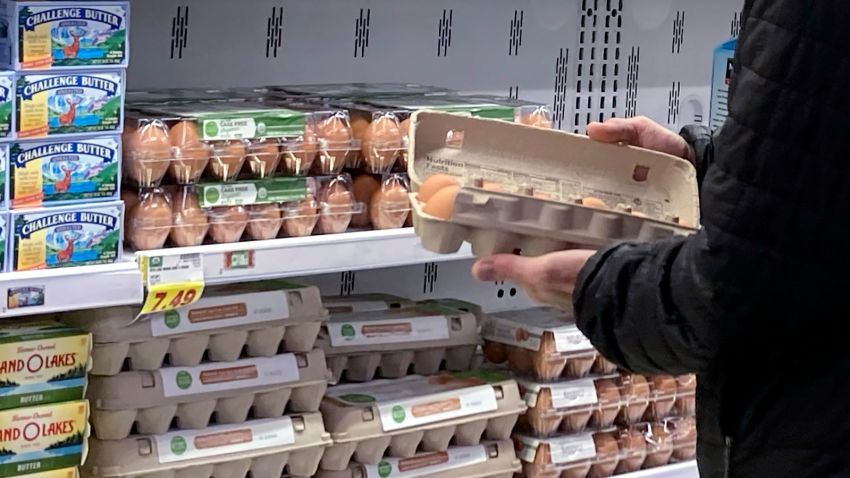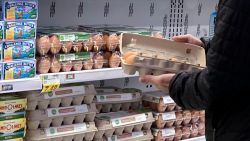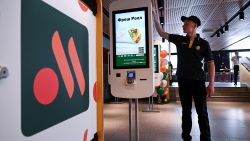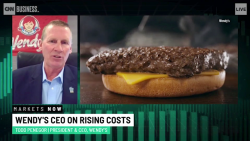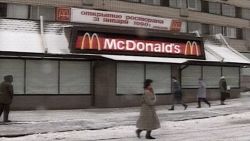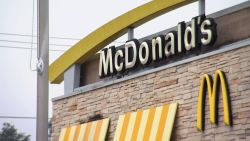A shortage of some fruits and vegetables in the United Kingdom that has prompted rationing at most major supermarkets could last until May, according to one of the country’s biggest groups of food producers.
The Lea Valley Growers Association (LVGA) told CNN Friday that UK growers were not harvesting tomatoes, peppers and eggplants at this time of year, as is usually the case, because high energy costs this winter had delayed planting.
“We should be picking tomatoes, peppers and aubergines now. However, they will be ready in May as we have only just planted them instead of last December,” Lee Stiles, LGVA secretary, told CNN. “Food production has to be planned months in advance, it is not like a factory that can be turned on and off at will.”
The group represents 80 growers across the United Kingdom’s southeast, a key growing region. LGVA members produce about three-quarters of the country’s cucumbers and sweet peppers, and about a fifth of its eggplants each year.
Four of the biggest supermarkets in the United Kingdom said earlier this week that they were imposing purchase limits on some staple items, including tomatoes, peppers and cucumbers. This includes Tesco (TSCDF), the UK’s largest supermarket chain, which has temporarily capped the number of packs of these products to three per customer.
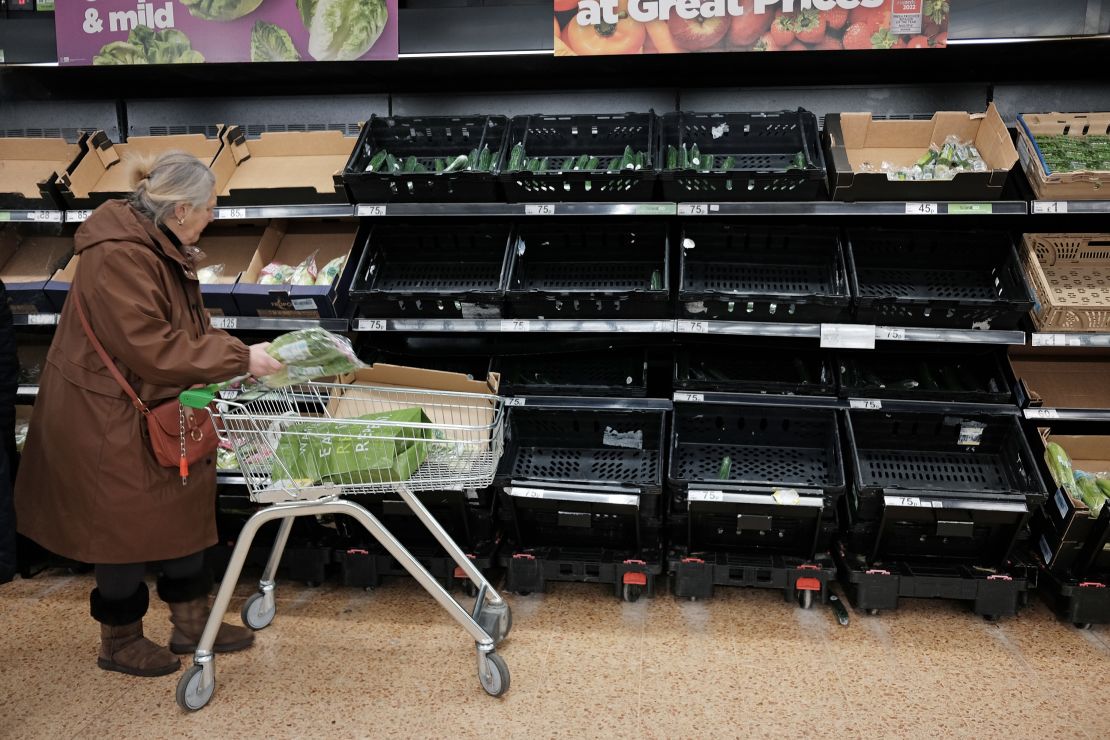
The supermarkets and the UK government have pointed the finger at poor weather conditions in Spain and Morocco, key exporting countries, as the main cause of the shortages.
But Stiles echoed other farmers’ representatives in also blaming other factors such as sky-high energy costs, as well as Brexit-related labor shortages and trade barriers, for the tight supply.
The LGVA’s comments also cast doubt on a forecast from Thérèse Coffey, the UK environment and food minister, that the shortages were likely to last up to four weeks. The British Retail Consortium (BRC), a trade group, said Wednesday that supply issues would last “a few weeks.”
The UK Department for Environment, Food and Rural Affairs (Defra) and the BRC declined to comment on the longer timeline predicted by the LGVA.
Energy costs
Stiles said growers’ soaring energy costs were a big part of the problem. Producing a single cucumber used to cost 25 pence ($0.30), Stiles said, but that has now hit £1 ($1.20) after natural gas prices shot up when Russia invaded Ukraine exactly a year ago.
Supermarkets delayed signing supply agreements until December, he said, as growers tried to negotiate higher prices to cover their input costs. But by then, “it was too late to plant, and over half of Lea Valley growers left their glasshouses empty,” Stiles added.
Minette Batters, president of the National Farmers’ Union (NFU), which represents more than 46,000 farming and growing businesses, said Tuesday that crippling input costs had weighed on production.
Though gas prices have fallen back in recent weeks, they are still above their historical average. Fertilizer, which is made using gas, is about 169% more expensive than in 2019, Batters noted.
At this time of year, the United Kingdom is heavily reliant on imports of fruit and vegetables. According to the BRC, UK supermarkets import 95% of their tomatoes and 90% of their lettuce in December and typically the same proportions in March.
Stiles said UK supermarkets had opted to import even more fresh produce from abroad this winter, taking advantage of lower prices sought by overseas growers. That left them vulnerable to disruption in exporting countries, he added.
Brexit to blame?
UK supermarkets have not mentioned Brexit as a reason for the supply crunch. And the UK government said in a statement Wednesday that “similar disruption is also being seen in other countries.”
Yet, currently, there are few indications — in media reports or on social media — that retailers in other countries are rationing sales.
And Stiles suggested that disruption could continue beyond the spring, citing a Brexit-related lack of workers.
“It is too late for growers to plant for the [summer-fall] season. The workers are not here, it will take 30 days to order the plants and another 12 weeks to start picking,” he said, adding that Brexit “has restricted” the number of migrant workers.
Although full UK border checks on fruit and vegetable imports from the Europen Union start only from January 2024, Stiles says additional paperwork has already deterred EU producers from exporting more to the country.
“Spanish and Morocco growers have also decided to sell to Europe instead to avoid the costs of a four-day road trip to Britain, additional fuels costs, customs fees, red tape and queues at the border,” he said.
Turning to turnips?
The shortages are another knock for British shoppers already grappling with record grocery price rises, which have inflamed the worst cost-of-living crisis in decades.
In the four weeks to January 22, food price inflation hit 16.7%, according to Kantar. That’s its highest level since the data company started tracking the indicator in 2008.
And a quarter of adults said they could not find a replacement for missing food items in stores over the past two weeks, according to the Office for National Statistics. That’s up from 15% the same time last year.
Coffey, the UK environment minister said consumers could opt for home-grown alternatives to scarce vegetables.
“A lot of people would be eating turnips right now rather than thinking necessarily about aspects of lettuce, tomatoes and similar,” she told parliament.
